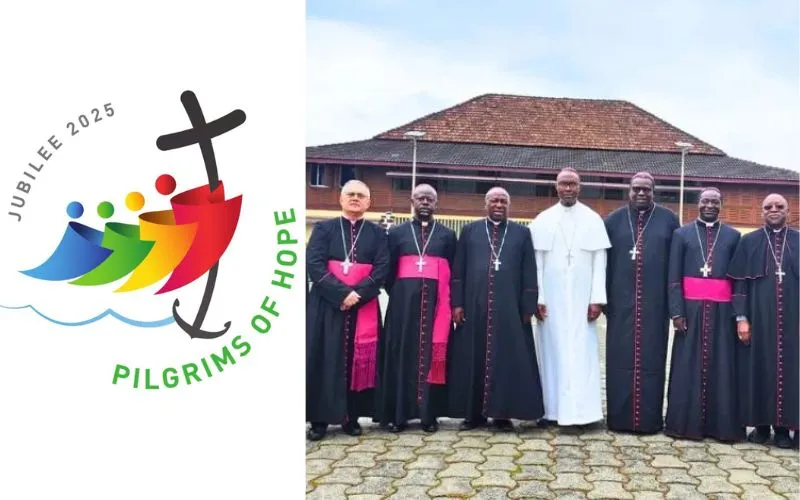Evangelization, on the other hand, is “about building trust, encountering a person, understanding a person, and introducing them to Jesus and proposing ideas, as opposed to just telling them something.”
Sartori said the way millennials answered this question also reflects the current political climate and a culture that prioritizes people’s comfort over everything else.
“In this culture of ‘if you disagree with me you hate me,’ I would say most millennials would say: ‘I’m not trying to convert anyone,’” Sartori said.
“But I would hope everyone is trying to convert someone, it’s just that there’s a right and true way, and then there’s a way that’s just kind of yelling at people, and that’s obviously not what I’m about and not what anyone would desire. And I think in general millennials are really sensitive to that.”
Klein also said that millennials are reacting to the polarization that characterizes the political and social media world of today.
(Story continues below)
“Actual authentic dialogue has in fact broken down, and I don't think that's a delusion of millennials; things are often so polarized that it is very difficult to have a dialogue which is perceived as open and a back and forth, and not somehow inauthentic or aggressive,” she said.
“It’s not that they don't want to share their faith, but it seems that sharing via dialogue or speaking makes people uneasy, and I don't think that's inexplicable, that seems to make sense,” she said.
Part of the training of FOCUS missionaries is teaching them how to evangelize, Sartori said - which includes building friendships and trust with people before proposing that they consider going to church or learning more about Jesus.
“The three habits (taught to missionaries in training) are the things we emphasize that help us to go and do evangelization,” Sartoir said. “The first is divine intimacy (with God), the second is authentic friendship, and the third one is clarity and conviction for what we call spiritual multiplication. So this idea that you’re investing deeply in a few people, and sharing your faith in a way that they can then go and do that with others.”
“You’re listening, you’re building trust, you’re speaking in a way that they’re going to be able to hear you,” Sartori said, “but you’re also hearing where they’re coming from on things.”
Once a friendship is established, Sartori said one of the easiest ways to talk to someone about God is to ask them about the faith tradition they had while they were growing up.
“It’s the basic questions of like - did you ever go to church growing up? Something like that that’s less attacking than, say, ‘How do you feel about abortion?’ or something that’s more politicized or a hot topic,” Sartori said. “You want to do something that’s a softer, more inviting conversation, so you can just understand the person.”
After a conversation about faith has been opened, then it can be time to invite someone to events at a parish or into a Bible study, if the person is open to it.
“While there’s an urgency for someone to accept the Gospel as quickly as possible, we also want to propose it and not impose it, so we’re not going to rush into anything on that,” Sartori said.
Klein said millennials are also most likely to be tuned into the need for authentic witness - that someone must be living a personal life of holiness and friendship with God before they can propose it to someone else.
The article on the Barna research from Christianity Today ended with: “Younger folks are tempted to believe instead, ‘If we just live good enough lives, we can forgo the conversation entirely, and people around us will almost magically come to know Jesus through our good actions and selfless character.’”
“This style of evangelism is becoming more and more prevalent in a culture constantly looking for the fast track and simple fix,’” it said, quoting Hannah Gronowski, the founder and CEO of Christian non-profit Generation Distinct.
But Klein said this kind of attitude is overly dismissive of the importance of personal holiness.
“Witnessing personal holiness - it's not like that's easy, its plenty important,” she said, especially with the recent sex abuse scandals that have rocked the Catholic Church.
“I don't think that millennials are crazy to think that personal holiness is the most important thing right now, especially when dialogue has broken down and there has been a lot of - with the recent scandals - insane hypocrisy where people's lives are not matching what they're saying,” she said.
“I think a big part of it is...holistic Catholic formation,” Klein added. “If you're not prepared to pursue wisdom and pursue personal holiness, you're not going to have that authentic witness and authentic life to share.”
While that doesn’t remove the necessity of evangelizing with words, Klein said, it does point to why millennial Christians may have answered that particular question the way they did, beyond a trend toward universalism and relativism.
The Catechism of the Catholic Church itself recognizes the disconnect that may exist between a person’s holiness and the preaching of the Gospel: “On her pilgrimage, the Church has also experienced the ‘discrepancy existing between the message she proclaims and the human weakness of those to whom the Gospel has been entrusted.’ Only by taking the ‘way of penance and renewal,’ the ‘narrow way of the cross,’ can the People of God extend Christ's reign. For ‘just as Christ carried out the work of redemption in poverty and oppression, so the Church is called to follow the same path if she is to communicate the fruits of salvation to men.’” (CCC pp. 853).
“It’s very clear that the Church has a missionary mandate, but I think it nuances that very well and talks about the hypocrisy that has been found,” Klein said. “I think that tension is what millennials are most keyed into, that personal holiness comes first before you can even think about opening your mouth.”
An oft-quoted line, typically attributed to St. Francis of Assisi, speaks of the tension between personal holiness and evangelizing: “Preach the Gospel at all times, and when necessary, use words,” the saying goes.
But if that quote really came from St. Francis of Assisi, Sartori said, it came from a saint who preached the Gospel so prolifically that he was known to preach it “to the birds.”
“He couldn’t stop preaching,” Sartori said, “so of all the people to have said that, St. Francis is one of the greatest examples of preaching (the Gospel).”
So while personal holiness is a must, he said, so is preaching the Gospel with words.
“To preach the Gospel is an integral part of being a Christian,” he said, “and we can’t separate that.”
This article was originally published on CNA Feb. 13, 2019.





